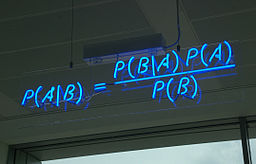 In Asimov’s Foundation, psychohistory is the mathematical treatment of history, sociology, and psychology to predict the future of human populations. Asimov was inspired by Gibbon’s Decline and Fall of the Roman Empire that postulated that Roman society was weakened by Christianity’s focus on the afterlife and lacked the pagan attachment to Rome as an ideal that needed defending. Psychohistory detects seeds of ideas and social movements that are predictive of the end of the galactic empire, creating foundations to preserve human knowledge against a coming Dark Age.
In Asimov’s Foundation, psychohistory is the mathematical treatment of history, sociology, and psychology to predict the future of human populations. Asimov was inspired by Gibbon’s Decline and Fall of the Roman Empire that postulated that Roman society was weakened by Christianity’s focus on the afterlife and lacked the pagan attachment to Rome as an ideal that needed defending. Psychohistory detects seeds of ideas and social movements that are predictive of the end of the galactic empire, creating foundations to preserve human knowledge against a coming Dark Age.
Applying statistics and mathematical analysis to human choices is a core feature of economics, but Richard Carrier’s massive tome, On the Historicity of Jesus: Why We Might Have Reason for Doubt, may be one of the first comprehensive applications to historical analysis (following his other related work). Amusingly, Carrier’s thesis dovetails with Gibbon’s own suggestion, though there is a certain irony to a civilization dying because of a fictional being.
Carrier’s methods use Bayesian analysis to approach a complex historical problem that has a remarkably impoverished collection of source material. First century A.D. (C.E. if you like; I agree with Carrier that any baggage about the convention is irrelevant) sources are simply non-existent or sufficiently contradictory that the background knowledge of paradoxography (tall tales), rampant messianism, and general political happenings at the time lead to a likelihood that Jesus was made up. Carrier constructs the argument around equivalence classes of prior events that then reduce or strengthen the evidential materials (a posteriori). And he does this without ablating the richness of the background information. Indeed, his presentation and analysis of works like Inanna’s Descent into the Underworld and its relationship to the Ascension of Isaiah are both didactic and beautiful in capturing the way ancient minds seem to have worked.
We’ve come a long way from Gibbon’s era where we now have mathematical tools directly influencing historical arguments. The notion of inference and probability has always played a role in history, but perhaps never so directly. All around us we have the sharpening of our argumentation, whether in policymaking, in history, or in law. Even the arts and humanities are increasingly impacted by scientific and technological change and the metaphors that emerge from it. Perhaps not a Cathedral of Computation, but modestly at least a new toolshed.